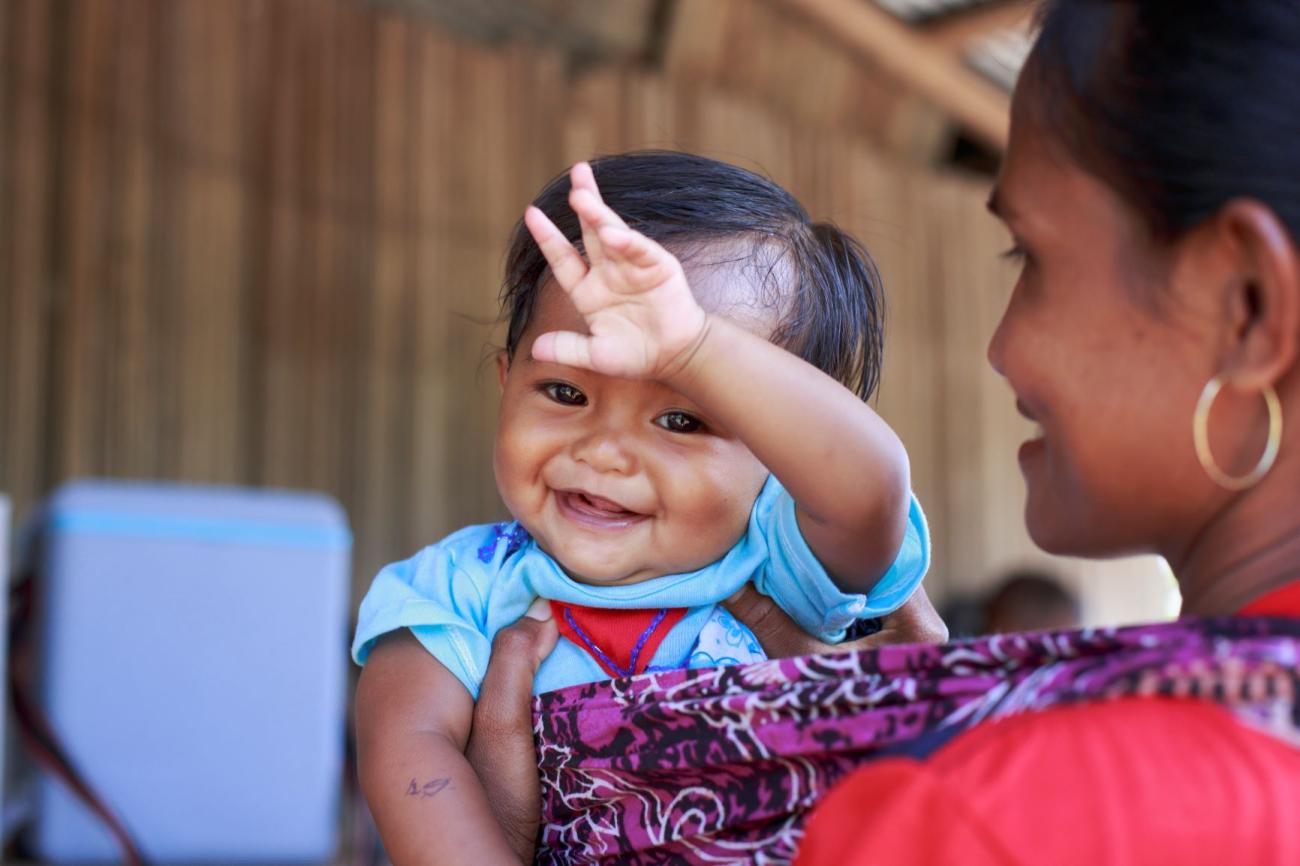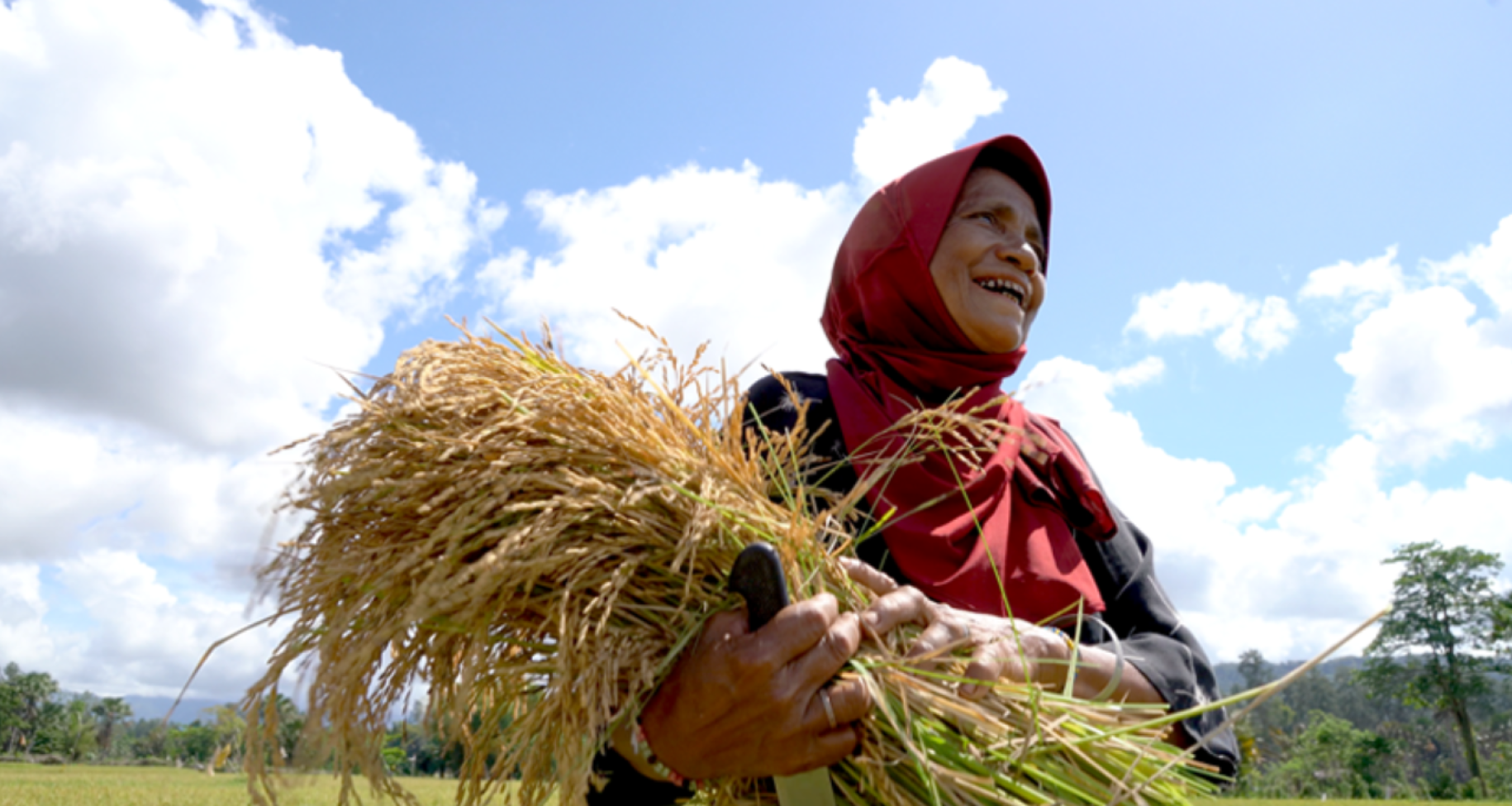Supporting Timor-Leste's strides towards ending hunger

The ‘Small Island Developing State’ of Timor-Leste experiences some of the highest rates of under-nutrition in the world, worsened by the impact of the COVID-19 pandemic. Forty seven per cent of children under five years of age are stunted; over 8 per cent suffer from acute malnutrition, and 23 per cent of women of reproductive age are anemic.
The country’s high dependance on food imports, low agricultural production and vulnerability to climate change make food insecurity a persistent challenge which impacts progress towards the Sustainable Development Goal (SDG) 2 on ending hunger, but also all 17 SDGs.
Improving nutrition and investing in sustainable agricultural and food systems has been front and center of the UN country’s team’s efforts to boost sustainable development on the ground. In the recently launched Annual Report and in a video discussion with agency heads, the Resident Coordinator outlined the significant strides that have been made over the past year.
Here are three ways the UN team are supporting the national authorities to tackle food insecurity and come closer to the goal of zero hunger by 2030:
Supporting good nutrition from birth
Thanks to joint advocacy from the Resident Coordinator and agencies across the UN country team, the Government has increased its focus and scaled-up interventions to improve nutrition across the island- including by rolling out a national breastfeeding campaign.
In April 2023, the Ministry of Health, with support from WHO and UNICEF, launched a nation-wide campaign to improve breastfeeding rates and raise awareness of its importance as a key driver against malnutrition.
Improving the nutrition of breastfeeding mothers has also been a key priority in advancing progress towards SDG 2 in Timor-Leste. Last year, around 25,000 pregnant and breastfeeding mothers received fortified corn-soy blend supplementary foods, thanks to UN support. The UN also supported the Government in procuring 574 metric tons (mts) of fortified supplementary nutritious food to prevent and treat malnutrition for pregnant and breastfeeding mothers across the country.

Smart rice production
In Timor-Leste, more than 70% of the population relies on agriculture as a primary source of income. Rice cultivation is at the heart of the country’s agricultural business, but it is also heavily impacted by the effects of climate change.
Improving rice cultivation to be more sustainable and climate resilient is a key part of ‘smart’ agricultural practice. To help implement these practices on the ground, the UN team conducted training sessions on the use of domestic rice millers for fortified rice production in two municipalities in Timor-Leste.
On top of this, the UN supported the National Logistics Centre build its capacity to locally produce and blend fortified rice, yielding 49.3 mts this year. Approximately 880 government officers, farmers and students increased their knowledge on the Climate Smart Agriculture (CSA) through training supported by UN.
Clean water for good nutrition
Access to safe drinking water, proper sanitation and hygiene (WASH) is helping reduce the prevalence of childhood stunting and prevent disease. This year, the UN team in Timor-Leste helped initiate a multi-year project to strengthen WASH systems alongside nutrition, food security and deworming.
Through these joint interventions with the Ministry of Health and other partners, around 160 communities achieved open- defecation-free (ODF) status this year and 102 households increased their water availability by developing water conservation practices and reforesting their areas.
To learn more about the UN and government’s joint efforts to boost nutrition and tackle food insecurity in Timor-Leste, tune into this One-UN, One Voice panel discussion.













